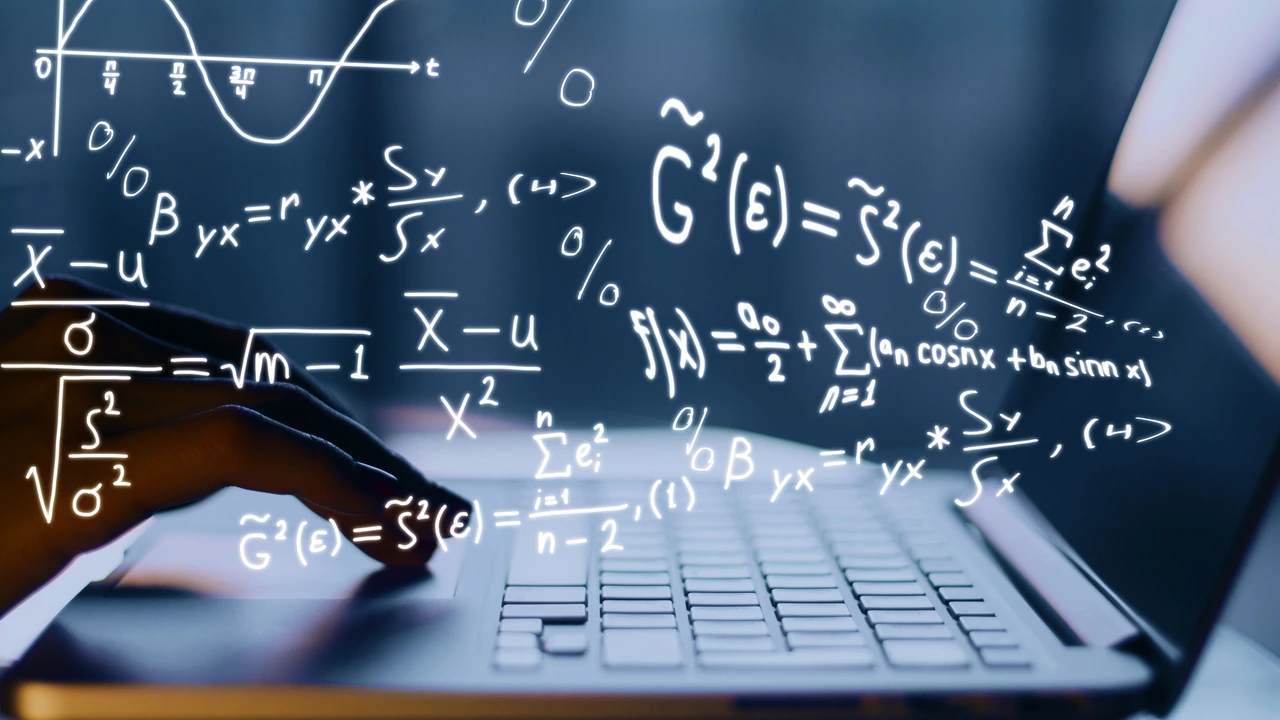Why do I need to know math to be a game programmer?

The Rapport Between Coding and Algebra
Let's start by talking about a classic favourite: algebra. Believe it or not, my friends, game programming and algebra go together like Freya, my better half, and her favourite book - they're inseparable! Algebra, as it turns out, is at the heart of game programming. Each time a character jumps, shoots or engages in any interactive activity, algebraic expressions are manifesting behind the scenes.
Still unsure? Just think about your favourite platformer game. The trajectory a character jumps along is determined by quadratic formulas (or parabolic equations, for the math buffs reading this). In simple terms, this is algebra in action! Combining mathematical expressions and functions helps game developers, like you aspiring lads and lassies, to create a believable, immersive experience for players.
The Pretty Cool Side of Geometry and Trigonometry
Remember those frustrating days in geometry class, trying to figure out the area of a trapezoid or the sine of an angle in a triangle? Well, it turns out, those vexatious shapes and calculations have a serious purpose - in the wonderful world of video game programming! Stay with me now, it's about to get more interesting.
Consider a racing game with realistic 3D models of cars. Designing these models requires knowledge of geometry. Spaces, shapes, and angles all come into sharp focus here. And let's not forget about the fun part - collision detection! It's all about detecting when game characters or objects collide with each other, so that the right response can be executed, like a resounding BOOM or a dramatic EXPLOSION! Now, don't tell me that geometry isn't cool.
The Nitty-Gritty of Physics
Moving swiftly onto something really fun: physics! Physics is probably my favourite part of game programming. It's not just about dropping an apple from a tree, folks. It's about gravities and forces; realism and fantasy; bombers and beagles - on a side note, my beagle, Baxter, once chased a bomber toy I coded across the living room. Pure entertainment!
You see, my dear readers, understanding physics can help you craft more ~exciting~ game experiences. A credible simulation of real-world physics can add an extra layer of fun to your game. And who knows, if you master the physics well enough, you might be able to play god, bend the physics to your will and create extraordinary worlds. A flying beagle, anyone?
Rummaging Through Arrays and Matrices
Okay, let's get down to the real nitty-gritty: data structures. When you think of arrays and matrices, you might not immediately think of games, unless you're a spreadsheet fanatic like Freya. But arrays and matrices are practically everywhere in game development. They're like the unsung heroes, working silently in the background, ensuring that everything runs smoothly.
In game programming, you use arrays for inventory systems, action sequences, and pretty much anything that involves a collection of similar items. Matrices, on the other hand, help in transforming, rotating, and scaling 3D models, manipulating complex multi-dimensional data. So, believe it or not, there's a whole lot of mathematical action taking place behind the scenes!
Finding ‘X’ in Binary Systems
Our next stop in this mathematical journey is the mystical binary system - the lifeblood of computers. A surprising fact to some would be how this system of 1s and 0s intertwines perfectly with the quintessential algebraic task: finding 'X'. But how so, Zander? Glad you asked!
In binary, we are constantly dealing with bits and logical operations (AND, OR, XOR and NOT, in case you're curious). And just like your favourite algebra problem, you have to find the 'missing one' (pun absolutely intended!). This comes in handy especially when dealing with things like bitmaps and pixel manipulation in game development.
Short Story of Probability and Randomisation
Finally, we're getting to a really fun bit: randomisation. Games like poker, slots or anything that involves a dice heavily rely on chance. Over here in Lockhart house, even Kiwi, our parrot, randomly chooses which colour perch to sit on every morning. It's the fun and unpredictable stuff.
Creating that randomness within a game, be it the spawn rate of mobs, loot drops, or roulette spins, is nowhere near as simple as Kiwi's morning choice. It's a heady mix of math and logic and can often lead to some serious frustration if not done right. A solid understanding of probability will help you immensely in creating a balanced yet unpredictable gaming experience.
So, folks, that's how math plays an essential role in game programming. I've seen it time and time again in my own game development journey. But remember, aside from math, success in game development also requires creativity, attention to detail and, of course, a healthy dose of patience. On my tougher days, I look over at Freya tinkering away on her spreadsheets or Baxter playfully biting Kiwi's tail... and I'm reminded of why I love this crazy, numerical, creative world. Let's embrace the math, everyone. It's a beautiful game!